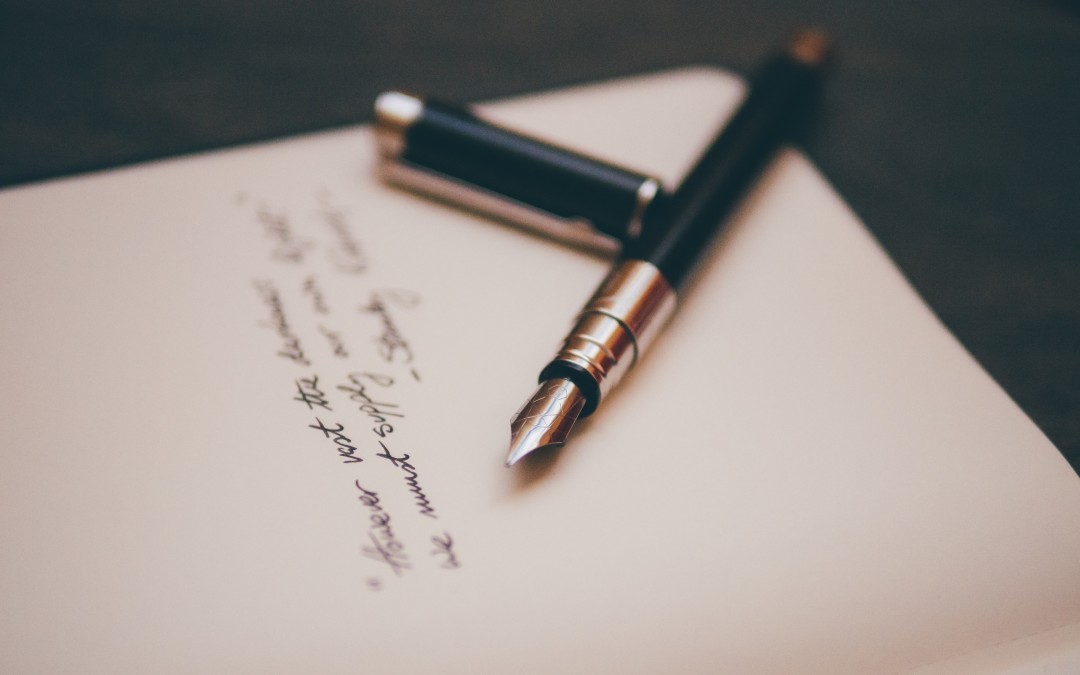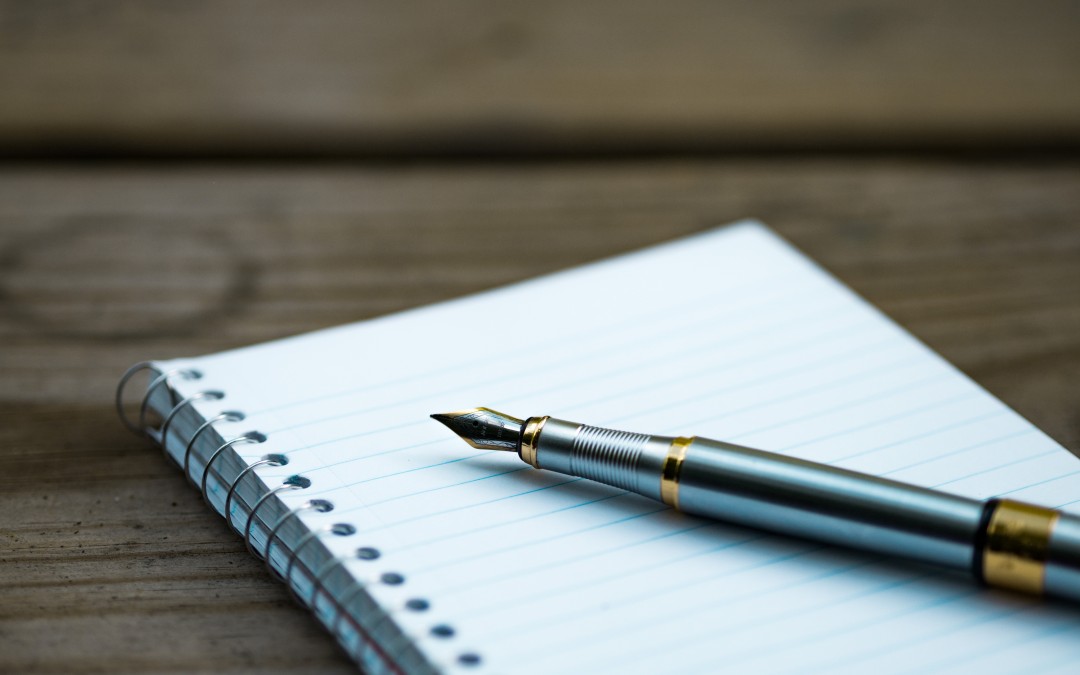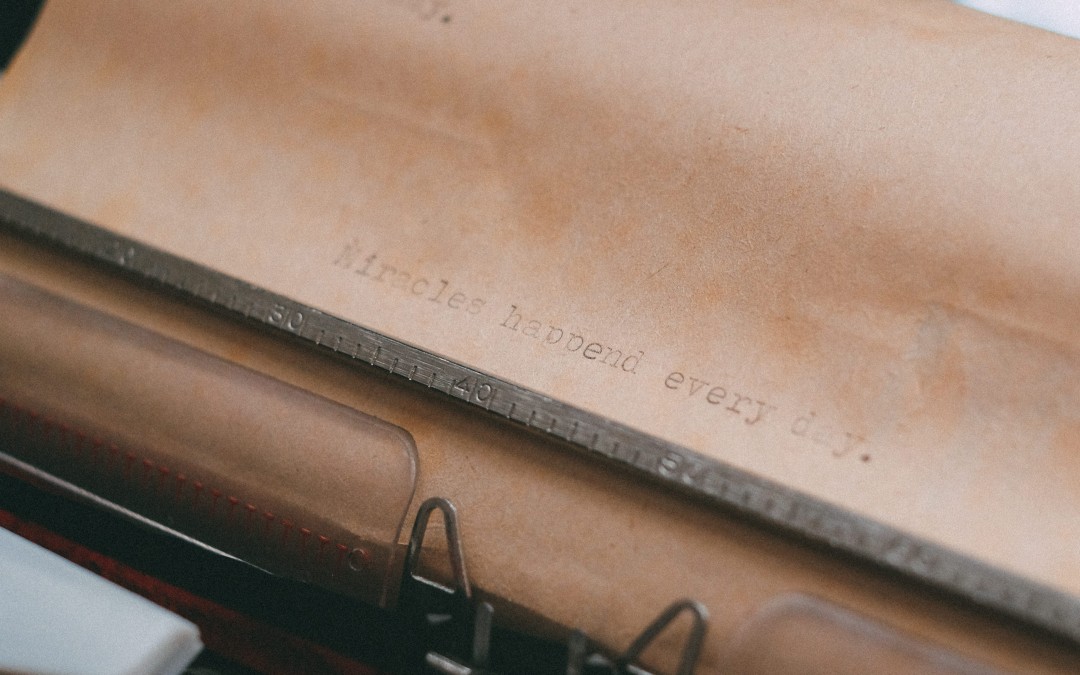
by Rachel Toalson | This Writer Life
If you missed last week’s blog, I talked about four of the voices writers will hear in their career. I promised that I would talk about each voice in more detail, so today I’d like to approach, with caution, the I Can’t Do This Voice.
This voice has many different manifestations. Sometimes it’s the voice that says we’re not actually equipped to do this, for whatever reason (probably several). It is the voice that tells us we don’t have enough experience, or we don’t know enough about what we’re trying to write. Sometimes it likes to remind us that we have never actually finished a manuscript or, really, anything of note.
Regardless of which manifestation you hear, this voice boils down to I Can’t Do This.
When this voice visits me, it can most often be traced to the doubt within me. Sometimes it comes from other people in my life—like a creative writing professor I had in college who took an instant dislike to me as soon as I walked in the door, and I him. He did not say encouraging things while I was in his class, and some of those things have stuck with me. I daresay many of us have stories that go about the same—whether or not it was a writing professor who first planted in our heads that we might not be able to do this.
Sometimes, in my most unguarded moments, this voice rises up from my past. I come from very humble beginnings. My family was poor. I should not have gone to college, because my parents couldn’t afford it. I went on scholarships, but I constantly battled the voice that told me I would never be anything more than poor. Passed over. Forgotten.
The I Can’t Do This voice, as you can see, is powerful.
This voice typically comes out to visit in three different scenarios.
Scenario 1: When we are doing something new.
Most often, I Can’t Do This visits me when I am writing in a genre or a style that is completely new and unknown to me. As writers, we need to have permission to experiment. This voice doesn’t like to let me.
I encountered it most recently when my email subscribers, after a poll, told me that they would like to see a thriller written by me. I had never written a thriller before. I didn’t really have much interest in writing a thriller. I don’t really even read thrillers. But because they asked, I did. As soon as I got started, the I Can’t Do This voice started shouting.
How to slay the voice in this scenario: Give yourself permission to be bad.
The first draft of my thriller was terrible. The second draft isn’t much better. It’s now sitting in a file on my computer, waiting for probably four to five more drafts before it will even start taking any kind of logical shape.
No one has to read that first draft. No one has the rest the next two or three or four. We don’t have to let anyone read what we’re writing until we’re ready. So we can write badly. In fact, it’s good for us to write badly. Give yourself permission to.
[Tweet “Give yourself permission to write badly the first go round. Take a little pressure off.”]
Scenario 2: When we’re smack dab in the middle of a really involved project.
Typically these really involved projects have about a thousand steps to them. I look at all those steps, and I shake my head and say, Nope. I don’t think I can do this, thus inviting the voice to agree with me
How to slay the voice in this scenario: Chip away at one step at a time.
If it’s too much to plan on brainstorming all the characters and the plot on the same day, do one character a day. Chipping away at a story sometimes allows for the deeper story to unfold.
I encounter this voice often when I am working on my middle grade series, Fairendale. This is a very involved series with a cast of characters that’s about as long as George R.R. Martin’s Song of Ice and Fire series. It’s massive. Sometimes it feels like I can’t do it. But I chip away, one thing at a time.
[Tweet “Break involved projects into little steps to keep the I Can’t Do This voice at bay.”]
Scenario 3: The instances when we find ourselves completely overwhelmed with everything.
And I mean everything—home, kids, work, people depending on me, deadlines, you name it. There’s a whole lot in our lives, every single day. We’re not going to get at it all.
How to slay the voice in this scenario: Re-evaluate and give yourself permission to cut away all the unnecessary.
If something is taking up mental and emotional space that you don’t need, get rid of it. If you think you need to do everything and do everything well, change your perception. We will never be able to do everything. We have to let some things slide or that voice will win. We won’t be able to do it all.
[Tweet “We won’t be able to do it all as parents who write. So re-evaluate and cut out the unnecessary.”]
Next week I’ll talk about the Who Would Even Read This voice. For now, give yourself permission to write a bad story, chip away one step at a time and re-evaluate what’s really important in your life so you don’t feel the need to do it all.
Week’s Prompt
A picture is one of my favorite ways to generate inspiration. Look at the picture below. Write whatever you want for as long as you can.
Photo by Joshua K. Jackson.


by Rachel Toalson | This Writer Life
Today I wanted to talk about all the voices that writers must face. In the next several weeks, I’ll be breaking each of these voices down and sharing practical tips for how to abolish them.
I say abolish, but I started this blog with the intention of telling you the truth about The Voices. And if I’m telling you the truth, I must say that these voices will probably never go away. But we can be stronger than the voices that come bombarding us in our weak moments.
All The Voices, at the heart of them, boil down to self-doubt. Some of them are the same across the board, and by that I mean across nonfiction, fiction and poetry. Some of them are more prominent in particular genres. Some of them are louder in our weaker areas. Some of them may not bother us at all. We’ll talk about all of that in the weeks to come.
But, for now, I’m just going to introduce you to them, even though I’m pretty sure you already know them.
There is the I Can’t Do This Voice.
There is the Who Would Even Read This Voice.
There is the This is Terrible Voice.
And there is the You’re Wrong Voice.
I’m sure there are more voices, but these are the voices that visit me the most when I’m writing, thinking about writing, on the brink of hitting “publish,” when I’m lying in bed at night and my mind won’t turn off because creative work is difficult to turn off.
Now. I have written stories for decades. I have self-published eighteen books this year alone. I have a book out on submission with traditional publishers. And yet I opened my laptop yesterday to brainstorm a series that people already love, and I could not hear my own thoughts for the shouting. My heart pounded. My throat dried out. My fingers shook.
This happens to all of us. So what I first want you to know is that you are not alone. It doesn’t matter where you are in your writing journey—you will fall prey to the voices at some point. They are relentless in their pursuit. But they won’t win unless we let them.
[Tweet “The voices of doubt we face as writers won’t win unless we let them. Don’t let them.”]
The voices stem from many different things: wounds in our past, things others have said about us or our writing, our own expectations, the nature of being a writer and the pervasive fear of humiliating ourselves. These voices can paralyze us if we don’t know how to battle them.
But there are some ways to face them head-on and let them know that they will not win your heart. In the next few weeks, I’ll be detailing exactly that—-how to battle the voices that can keep you from realizing your full potential as a writer.
When we’re so entrenched in our writing lives, we can often lose sight of the fact that most writers battle the same voices we do. They make it look so effortless, don’t they? So, for now, I want you to know that you are not alone.
You can do this.
Someone will read it.
It is not terrible.
And you are not wrong.
Exercise:
Write down the voices you hear in your head when you announce that you’re going to write something or publish something or you’re simply thinking about writing or publishing something. (And don’t worry. I’m not asking you to write them down so they win. This is so you will win against their attack. We first have to know our enemy to defeat him (or her).)
Week’s prompt
Write as much as you can, in whatever form you want, on the following word:
Bad luck

by Rachel Toalson | This Writer Life
I used to think that writing came naturally to me. When I was in high school I won all sorts of awards for my writing. When I became an adult, those awards didn’t stop coming, they just moved to the journalism sector. I was good at what I did. I didn’t really have to work at it.
False.
While it might be true that some people come equipped with better skills—like editing and grasp of language and vocabulary and spelling—the truth is that our talent is directly related to how hard we work at it.
[Tweet “Our writing talent is directly related to how hard we work at it.”]
When I was in journalism school, in order for any journalist to progress into the senior classes required for a degree, we all had to pass this test called the GSP. GSP was an acronym for Grammar, Spelling and Punctuation. Everybody in my journalism classes talked about this test like it was something to be feared. I feared it, too. If you didn’t pass this test, you could pay to take it two more times. If you didn’t pass it those other two times, you would have to find another degree.
I made myself sick the night before this test. It wasn’t really a test I could study for—mostly because I didn’t really know how to study for grammar and spelling and punctuation. It was too overwhelming. There were too many variables. So I didn’t study. I went in and took my test and cried (I waited until I’d turned the test in), because I thought I’d failed.
A few days later, I got a call from my advisor, who told me he needed to see me. I thought for sure I’d failed the test and would have to try again. But when I got to my advisor’s office, he had a huge, goofy smile on his face. He told me I’d only missed one question on the test—how to spell broccoli, which had always been a problem for me. It was the highest grade they’d seen on the GSP.
I took this to mean that I must have some innate talent. For the rest of that year, I sailed through all my writing intensive classes. I was a talented writer. I didn’t have to work as hard as all the others. I only had to put in minimal effort, and the red carpet of success would unfold itself for me.
Now that I’m an older adult and, I’ll just go ahead and say it, less cocky, I know that it was not innate talent I had. Sure, maybe I have the ability to read words and know what they mean and call them up in mind-pictures when I need to spell them correctly. But the foundation for that ability was the stories that I read as a child. I was always reading stories. I studied words, without even knowing I was studying them. I was never without a book, anywhere. When you have a background like that, of course you’re going to be good at spelling and grammar and punctuation and the mechanics of writing, because these are the intuitive things you pick up from books.
My 7-year-old is not a great speller. My solutions for that? He needs to read more. He reads a lot. But he will learn how to spell by reading words on a page.
I tell you all of this to say that we can often get in this place as writers where we believe that there is a finite amount of natural talent available to us—we either have it or we don’t. It’s not true. Some of us might have to work harder than others at things like spelling and grammar, but every writer grows her writing talent in proportion to how hard she works at it. Every writer can become talented—brilliant, even—if he is willing to work really hard at it.
I work really hard at writing. Every month, I read at least two writing craft books. I read at least six novels, three of those usually award winners, because I want to learn how to write like that. At the end of every year, I’ve read at least 120 books. At the end of every year, I’ve written millions of words, because I show up every day, no matter what I feel like or which kid ticked me off or whether or not there’s a coherent thought in my head. I do the work, all the way around.
We cannot simply ride on our talent. We have to do the work. We have to study. We have to know ourselves and then grow ourselves. Talent plus work equals brilliance in the writing world.
[Tweet “Talent plus work equals brilliance in the writing world.”]
Continuing education matters—and I’m not talking about higher degrees. I have a bachelor’s degree. It’s probably all I’ll ever have, because I have a husband and six kids and a career I love. But I put myself through a rigorous school of my own. And that is what, in the end, will ensure that I become the best writer I can possibly be. I have not arrived. I actually never will. But the trying is what mattered in the first place.
We can all do the same.
How to Continue Your Writing Education:
1. Read.
Read voraciously. Read widely. Read intentionally. When you think about higher education–particularly college–you think about texts. Or at least I do. What kind of texts would I need to read and study get the equivalent of an MFA in young adult science fiction? What about middle grade fantasy? What about adult literary? (These are rhetorical questions, but soon, I’ll answer them in a roundabout way. I’ve got some resources planned that will make it easy for all of us to boast of an MFA with everything but the diploma on the wall.)
How do you study the books you read? You mark passages, you fold pages, you take notes, even if it’s a novel. You take note of the passages or features you like. You try to figure out what it is that draws you in and keeps you reading.
2. Write.
Part of honing talent is practicing. And part of practicing is having a designated time, every day (I do five days a week and leave the weekends open for inspiration) when you will work on your writing. Write essays or poetry or stories. Write all of them. Make it a regular part of you day, just like any other practice. And be relentless about keeping your writing appointment.
3. Study resources.
There are so many writing resources out there. I try to provide at least on every week for you to check out. Go back through your old emails. Start with some of the writing craft books I suggest, or email me to ask about specific ones you may have missed. I’ve read close to 100 writing craft books to date–and continue my education with at least two every month. I take what I want from each book and, once finished, pick up another. But don’t just read writing books. Read business books and creativity books and books that will help you polish and target your writing so your audience will hear you.
Just don’t ever stop learning.
When we stop learning, we stop growing and improving.
Week’s Prompt
Write what comes to mind when you read the following quote:
“I frequently hear music in the very heart of noise.”
—George Gershwin

by Rachel Toalson | This Writer Life
Last week I shared about how my video show is celebrating one whole year of production. It started out much different than it is now, but all the same, I haven’t amassed a whole bunch of followers yet. Truthfully, I had expected to be further along than I am.
This happens often in the life of a writer. We all believe that the Internet has made visibility so much easier, but that’s not the case. I told you last week that this is a long game, that the people who show up every day in spite of who is listening or reading or watching—they are the people who will have staying power. Because they’ve decided they will have staying power. When we are dependent on our visibility for whether or not we continue doing what we do, we are bound to be disappointed.
So how do we stay motivated, as writers, to continue producing content every week, spending hours on the writing of words we’ll give away, just so a few people can show up and maybe like it, maybe not? What’s the point?
There is a very important question we have to ask ourselves when we are flailing and wondering why no one is paying attention. And this is not the question that most business people will tell you to ask. I’ve studied business. I know the right questions. But this is something that burrows down to the heart, which I believe is the truest indicator for what we should do next. I trust my heart. So I always ask myself the question: Do I love this?
This question can be asked in other ways: Am I passionate about this? Does it really matter whether anyone shows up or not?
It’s okay if the answer to the first two are No and the last one is yes. You have to decide that for yourself. (One caution, though. If you’re having a bad week, maybe wait until your emotions even out a little to do this sort of analyzing.)
If you decide that you do love what you do and you are passionate about it, at least at this point in time, and that it does not matter one little bit whether someone shows up or not, then, by all means, keep doing what you’re doing. And then ignore the stats.
I know that business people will say. You have to analyze stats to see what’s working. I’m a bit nontraditional when it comes to this sort of thing, because I don’t believe that it’s necessary to write for the market or tailor our stories to the market.
If we’re not concerned with statistics, we’re never going to be bothered by what the market does anyway, right? I mean, logically, that makes sense. So I’ll write what I want to write. I’ll produce what I want to produce. I’ll keep growing and changing and learning and sharing all of that with the handful followers I have, and one day, when my staying power has been proved, people will wonder why they didn’t notice in the first place. Stats don’t matter at the early end of the Long Game. Passion matters far more.
It’s not always easy, but remember it’s a long game. It’s easy to fall into the sort of envy that says, well, that person got a viral post, why doesn’t mine ever go viral? It’s easy to compare and contrast and try to figure out what we can do to possibly get more attention. But we have to remember—those attention spots? They usually go away tomorrow—unless you have a store of information already at the fingertips of people. And when you do, you’ll hit those attention spots and you’ll stay there.
Build your vault. Somewhere along the road of your building, you’ll discover your treasure—because it’s with practice that we become brilliant.
And after all this, don’t forget to reevaluate often. Sometimes our goals change. That means our actions have to change, too. Sometimes we learn something new that feels right. If, at any point in the future, I find that my video show falls outside of my goals, I will not hesitate to cut it from my schedule. The same should be true for anything we decide to do.
Let’s recap my tips for persevering when it seems no one really cares:
1. Analyze the depth of your passion for what you’re doing.
2. Ignore the stats.
3. Remember it’s a long game. Sometimes it’s a long, long, long game.
4. Reevaluate often.
Enjoy what you create, and the passion will see you through you invisible days.
[Tweet “Enjoy what you create, and passion will carry you through your invisible days.”]

by Rachel Toalson | This Writer Life
This week my video show, On My Shelf, is celebrating one year. If you were to look at followers and number of views and stats that all the business people tell us mean something important, you wouldn’t be able to tell that I’d been doing this for a year.
As I crept up on this one-year anniversary of producing a show that first began as a weekly show and more recently became a weekday show, I found myself mired down a little by these statistics. I don’t usually check statistics because, honestly, they don’t really matter that much to me. I do what I do because I love it. Because I have to. Because there is no other choice for me but to share books and advice and life so that others might find themselves in the things I have to say or feel encouraged and inspired, or, at the very least, find their next great read.
So I don’t often check statistics. But an anniversary is also a time to consider what’s working and what’s not. I have a lot on my plate as a writer. I publish five blogs a week. I publish five videos a week. I write at least 50,000 words of fiction and nonfiction every week. I have six children. I have a husband. I have a life outside of my career. Producing this video show eats away hours of my time every single week.
The statistics of it started weighing me down a little. Writers are constantly battling the ups and downs, the victories and the not-quite-victories, the visible and the invisible. I started to question the value I had to offer. I started to question what I was possibly doing wrong. I started to question whether I should do it at all anymore.
This isn’t the first time I’ve asked myself all these questions. Periodically, I’ll find myself in this pervasive state of invisibility, and it’s not easy to climb out from under that cloak. But what it always boils down for to me is that I create value so that, in the future—whether I see the results of that now or not—someone will find my content and their world will shift a little for the better. I’m not doing any of this for notoriety or fame or even the coveted viral spot on the Internet. I’m doing it because it’s vital to my life. Without it, I’m a little less me.
(And it has to be the same for all of us. Creativity for creativity’s sake.)
But even if it didn’t boil down to that, it would boil down to another concept that’s become important in everything I do for my writing career. I like to call it the Long Game. The Long Game is exactly what it sound like—long. It means that whatever success looks like for me—and sometimes, I admit, that’s hard to define, because sometimes the world steps in and says it should be number of books sold and number of views on a video and number of visitors to a blog—but whatever success looks like, it’s not going to happen overnight.
We do not become brilliant writers overnight. One essay, one story, one idea doesn’t make us brilliant. We become brilliant in the work, the every-day creation of those multiple essays and multiple stories and multiple ideas developed into whatever it is they become.
This is a long, long game.
[Tweet “We do not become brilliant writers overnight. This is a long, long game.”]
The Internet and its visibility likes to lure us in and say things have changed in recent years, but they haven’t. Writing has always only been a Long Game. The ones who show up every day and work in spite of who’s reading or watching or listening—they’re the ones who will become brilliant.
[Tweet “The writers who show up every day and do the work are the ones who will become brilliant.”]
A writing career is like a Giant Himalayan lily. Do you know about this flower? For most of its life, it exists as a clump of shiny leaves, but after five to seven years it almost magically grows nearly 10 feet and unfolds its trumpet-shaped flowers for the first time. It becomes beautiful, noticeable, brilliant.
Next week I’ll talk about some practical applications of this. But, for now, remember the old adage “slow and steady wins the race.” Persevere. Even when no one is paying any attention. And maybe, if we’re both lucky, we’ll see each other under our invisibility cloaks and wave and give a thumbs up and carry on our separate ways.

by Rachel Toalson | This Writer Life
In case you don’t already know, a query letter is a letter that is sent to agents or editors when we are trying to get our manuscript traditionally published. A query letter contains some of the elements that will also be used in a book blurb, which is a description of our book that we’ll use on places like Amazon or iBooks or Barnes and Noble, if we’re planning to self-publish. So some of this will be valuable even for the self published authors out there.
The query letters that I have written in my career always have four distinct parts. The first is the introduction, where I say something like The Midnight Hour is a literary thriller of 80,000 words, written in the style of Agatha Christie’s And Then There Were None and Iain Reid’s I’m Thinking Of Ending Things.
So it’s sort of an already-published-novel meets another already-published-novel. This gives agents and editors a feel for your book and whether or not they will like it. So make sure you pick smart, accurate comparisons, because if you say your book is written in the style of J.K. Rowling’s Harry Potter series and your book’s not even a fantasy, agents and editors will stop reading almost immediately.
The next part of an effective query letter is the body. This is where the book description, or blurb goes in.
Here’s what every blurb contains:
1. The names of the main characters.
2. Something interesting about those main characters and/or what they want.
3. The inciting incident—this is the thing that changes everything and creates the story.
4. The main conflict of the story.
5. Some complications along the way.
6. The stakes—what happens if the character fails in his goal.
7. And an open-ended wrap-up.
Here’s what a blurb looks like in practice. For this example, I’m using an adult mystery/thriller that needs a lot of cleaning up before it goes anywhere.
Step 1: List out the elements.
1. Main characters: Reid Fletcher and Emi Ono
2. Interesting tidbit/what characters want: Reid: unpredictable, charming, storied past. Emi: quiet, dependable. They form the team at Fletcher Agency.
3. Inciting incident: Reid goes missing
4. Main conflict: Local police believe it’s just another Reid Fletcher prank.
5. Complications: Threats start showing up at the office and Emi’s home.
6. The stakes: Reid could live or die.
7. Emi and Park have to find Reid before it’s too late.
Step 2: Put all the pieces together in a coherent way.
Reid Fletcher is an unpredictable, charming literary agent with a storied past. Emi Ono is his quiet, dependable editorial assistant who shows up because of an ad in the local paper. Together they form the team at Fletcher Agency.
But one month into their partnership, just after Reid kisses Emi in a dark hall, he disappears. When Emi calls the local police, they write it off as another Reid Fletcher Prank. They know him well. He’s done this before. He always come back. But Emi’s not so sure.
When threats start showing up at the office and, worse, inside her apartment, Emi enlists the help of her friend Park Chen to solve the mystery of Reid’s vanishing act, hopefully before it’s too late.
Not so complicated, right? Fill in the blanks, put it all together.
The next part of the query letter is the bio section. List things you’ve done or books you’ve written or accomplishments that you’ve had in your writing career. (Don’t fudge. See below for some quick tips.)
And the final section of the query letter is the closing, where you’ll thank the agent or editor profusely for taking the time to read your letter. Agents and editors get so many queries every day. It’s significant when they take the time to read yours all the way through.
Here are three things I recommend you remember about your pitch:
1. Keep it interesting.
Don’t tell us every single detail about you story. This can get tricky in something like a science fiction or fantasy story that involves world building. But only tell the barest details that matter.
2. Protect the mystery.
Make sure you leave the description open-ended. It needs mystery so we either have to request the book or buy it in order to read what happens.
3. Don’t beef it up with things that don’t actually happen.
This is often a temptation when you write literary fiction. I always feel it when I get ready to write a description for a literary book. Is it really all that interesting that Character A has been dealing with depression for fifteen years and that Character B is worried that his wife is going to leave him? Literary novels are much more inwardly focused and sometimes don’t even have much action going for them. But deny the temptation to add events that don’t really matter in the grand scheme of the story. Characters can speak for themselves.
Because I know that oftentimes we learn more from what not to do, I’m also going to include here three things we shouldn’t do in a query letter.
1. Make yourself sound more accomplished than you actually are.
I equate this with padding the resume. If you haven’t had any stories or poems or essay published anywhere outside your blog, don’t worry about it. Don’t try to make something up. Editors and agents are good at spotting fakes. Don’t make it be you.
2. Don’t be apologetic.
Sure, agents and editors are super busy and get tons of queries every year. But the fact is, you’ve written a good book. You deserve to have a tiny slice of their time, whether or not it works out for you. Don’t sell yourself short.
3. Don’t send a letter without doing research.
I talked a couple of weeks ago about how it’s important to know agents before you send queries to them. It’s not only a good use of their time, but it’s also a good use of your time. Sending multiple query letters takes a long time. You want to be as efficient as you can be, so do research. And if you don’t know where to do research, check out the blog linked above. It includes some valuable links.
The last thing I want to say about effective query letter is don’t be afraid to adjust and try again. If you find that your letter isn’t getting the responses that you really want, take a look at it with fresh eyes and see where you can adjust. Send it to a copyeditor to make sure you don’t have any mistakes that might be immediately turning away agents and editors. Give it to a trusted friend and ask them for their honest opinion on whether or not it works.
And, above all, don’t give up.
Week’s prompt
Write what comes to mind when you read the following quote:“You can make an audience see nearly anything, if you yourself believe it.”
—Mary Renault








